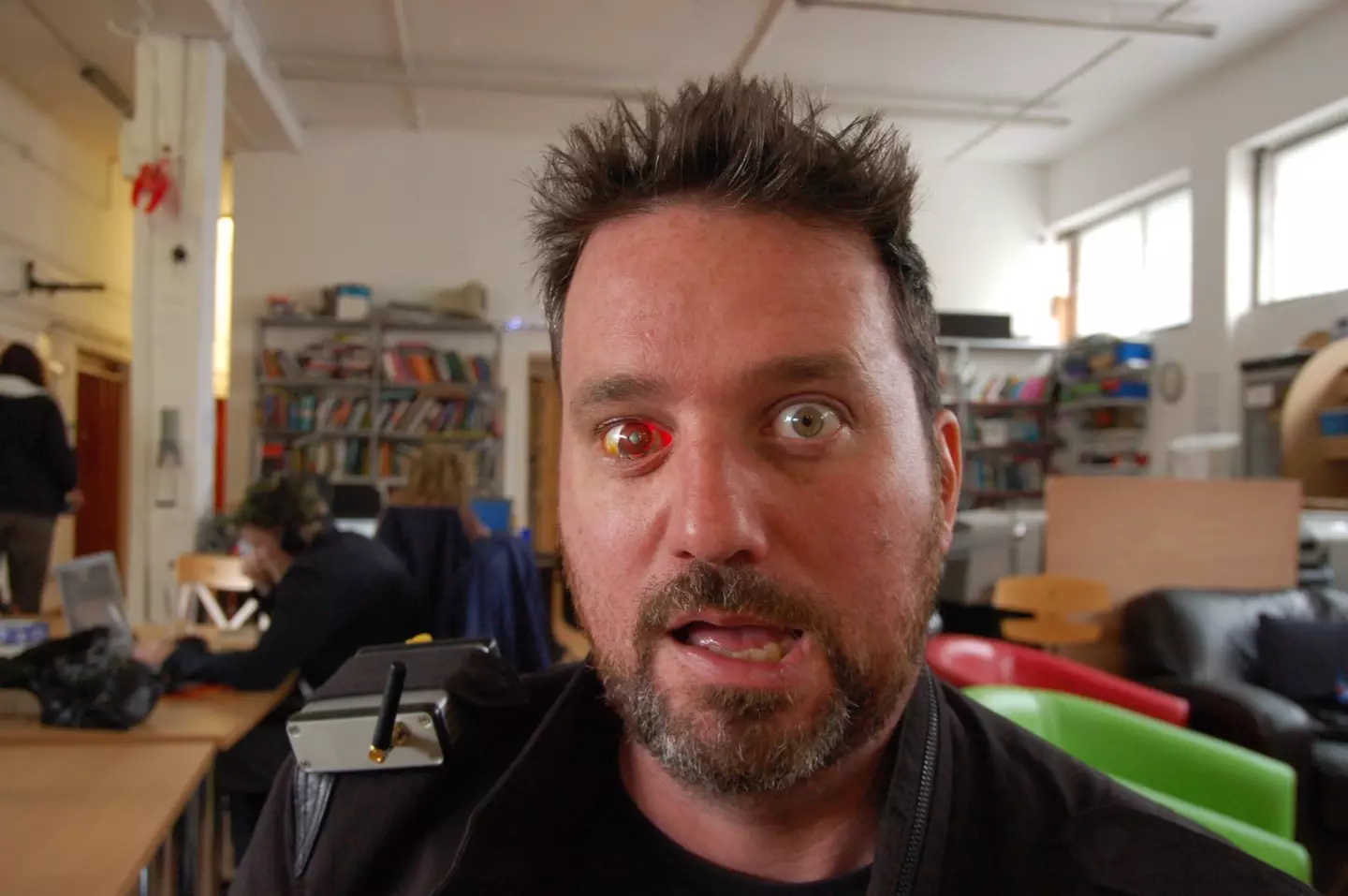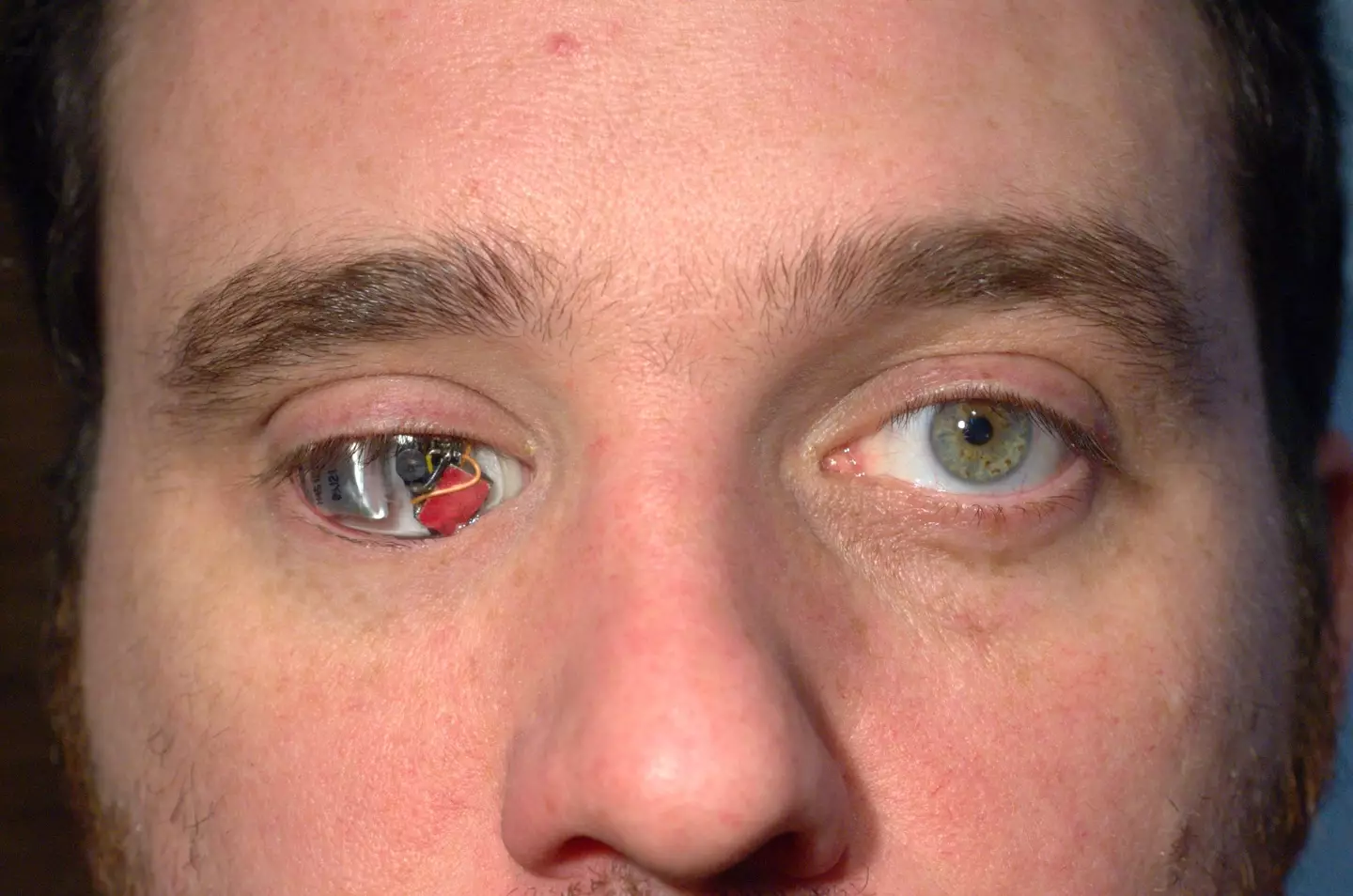
A man who replaced his lost eye with a wireless camera has explained why he did it.
The man, whose name is Rob Spence, has been dubbed as “Eyeborg” after he fitted his empty eye socket with a camera.
The filmmaker had to have his right eye surgically removed after being involved in a shooting accident as a child.

Advert
After several attempts and efforts made by medics to save Spence’s eye, he ultimately had it removed in 2007 after his cornea degenerated.
Speaking to CNN Business in 2011, he explained: “I was messing around with a 12 gauge shotgun [and] I tried to shoot a pile of cow crap, but I wasn’t [holding] the gun properly.
“I had my eye right against the gun like a cowboy in the movies and there was an accident.”
However, when it came to getting a prosthesis fitted, Spence wasn’t interested in any of the traditional options.
Advert
Instead, he enlisted the help of designer Kosta Grammatis to create a wireless camera.

A miniature circuit board was also designed by electrical engineer Martin Ling.
The device was then fitted behind a prosthetic eye that could be placed into Spence’s socket.
Advert
The eye can film up to 30 minutes of video before it needs to recharge and it even has a magnetic switch for Spence to turn it on and off.
He continued: “The great thing about engineers is that they love science fiction and pop culture, and this is a very science fiction-y/pop culture thing to do.”
Since then, Spence has partnered up with an ophthalmologist to provide 3D printed eye prosthetics, called Next Eye Prosthesis.
.png)
Advert
On his website, Spence said: ““I am excited to be partnering with a young ophthalmologist in Poland, Marcin Jaworski, who has a startup based on making prosthetic eyes with a 3D printer. The company is called Next Eye Prosthesis and it will provide more exact, and more accessible prosthetic eyes for the one-eyed people of the world. Cheaper, more realistic, and faster to build.
“As a bonus, having a 3D printed prosthetic eye shell makes the production of eye cameras much easier for the Eyeborg Project. It’s tricky space and having it in 3D from the beginning is invaluable. I am also hoping to expand Next Eye Prosthesis’ mission later on to incorporate tech and help create an army of Eyeborgs! Perhaps as a start we could make eyes that look realistic but can glow red on command.”